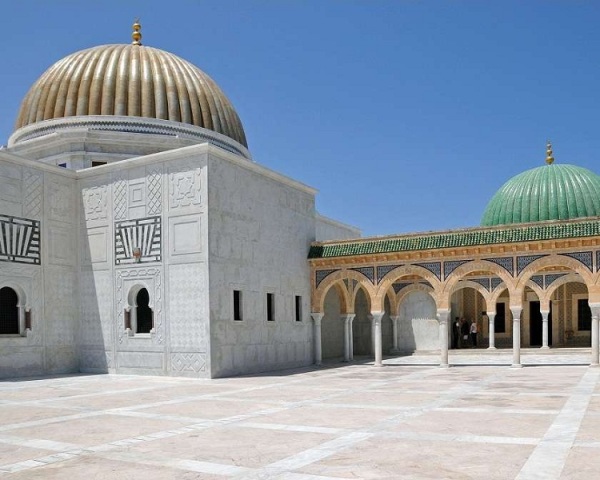Tunisia is an African country, which boasts of more than 1000 km of Mediterranean coastline. Read further and explore some fun & interesting facts about Tunisia.
Facts About Tunisia
Tunisia is a North African country, situated along the Mediterranean coast, to the southwest of Sicily and south of Sardinia. A tourist friendly country in North Africa, Tunisia largely attracts adventure-seekers, especially during winter. The natural landscape allows for the perfect paragliding activities and is also great for mountainous and sea sports. The country stands bordered by Algeria in the west and Libya in the southeast. The northernmost country in Africa, Tunisia boasts of more than thousand miles of coastline (Mediterranean). The landscape of the country varies from cliffs of the north coast to woodlands of the interior, from steep valleys to desert and from soaring mountains to salt pans that are lower than sea level. Around forty percent of Tunisia’s landscape comprises of the Sahara desert, lying to the south of Gafsa and Gabès. The fluctuating economy is based on market gardening, particularly, vegetables. The rest of the economy thrives on tourism, petroleum and phosphate sourcing. If you are searching for more facts, read on to get some more information on Tunisia.

Image: archer10 (Dennis)@flickr
Fast Facts
Continent: Africa
Area: 163,610 km2
Capital: Tunis
Population: 10,732,900 (2012 estimate)
Currency: Tunisian dinar
Official Languages: Arabic,French, Berber, English
Independence Day: March 20, 1956
Calling Code: +216
Type Of Government: Unitary semi-presidential republic
Fun & Interesting Facts About Tunisia
- The official name of Tunisia is the ‘Tunisian Republic’.
- The official language of Tunisia is Arabic, but French is also widely spoken there.
- Tunisia is the smallest country in North Africa; the southern part of country comprises of Sahara Desert, while the rest of the country consists of fertile soil and 1310 km of coastline.
- Majority of the population in Tunisia comprises of Muslims, followed by Christian and Jews.
- Arabs, Europeans and Jews comprise of the main ethnic groups of Tunisia.
- The currency of Tunisia is Tunisian Dinar.
- Some of the major tourist attractions in Tunisia are the Ancient Berber Villages, dotted with stark landscapes, granaries, flea markets and ‘caveman’ dwellings.
- The capital of Tunisia is Tunis.
- Tunisia is the northernmost African country, apart from being the smallest nation situated along the Atlas mountain range.
- The year 1883 saw French Protectorate being established over Tunisia.
- Tunisia gained independence from France on 20th March 1956 and the national day is celebrated on this day.
- Till date, Tunisia has had only two presidents - Habib Bourgiba, who ruled from 1956 until 1987, and Zine El Abidine Ben Ali, who assumed power in a bloodless coup in 1987.
- Tunisia is a member of the United Nations, World Bank, World Trade Organization, League of Arab States, the Organization of the Islamic Conference and the International Monetary Fund.
- Modern day Tunisia is the location of the ancient Phoenician empire, centered on Carthage, its ruins now around 10 km from modern Tunis.
- Tunisia is divided into 24 governates (wilayat), of which Tataouine is the largest and Tunis is the smallest, in terms of area.
- Tunisia is home to a number of archaeological sites, particularly those of Roman origin.
- Tunis is currently the only town in Tunisia to be equipped with a metro ("tube") service, which is more like a tramway.
- The highest point in Tunisia is formed by Jebel ech Chambi (1,544 m).
- The Tunisian oasis at Kebili has been found to contain evidence of Stone Age settlements.
- Spain occupied Tunisia for a short time, in the middle of the 16th century. The country became part of the Ottoman Empire in 1574.
- Most nationalities do not require Visas to enter the country.
- The Tunisian economy is primarily agricultural based. Olives, olive oil, pulses and dairy products are produced in substantial quantities for export. Apart from agricultural products, mechanical goods, textiles, phosphates, chemicals and petroleum are also produced and exported to different countries.
- Tunisia is home to 4 international airports namely Tunis-Carthage International Airport, Monastir International Airporrt, Sfax International Airport and Djerba International Airport.
See also
More from iloveindia.com
- Home Remedies | Ayurveda | Vastu | Yoga | Feng Shui | Tattoos | Fitness | Garden | Nutrition | Parenting | Bikes | Cars | Baby Care | Indian Weddings | Festivals | Party ideas | Horoscope 2015 | Pets | Finance | Figures of Speech | Hotels in India : Delhi | Hyderabad | Chennai | Mumbai | Kolkata | Bangalore | Ahmedabad | Jaipur
- Contact Us Careers Disclaimer Privacy Policy Advertise With Us Lifestyle Sitemap Copyright iloveindia.com. All Rights Reserved.







